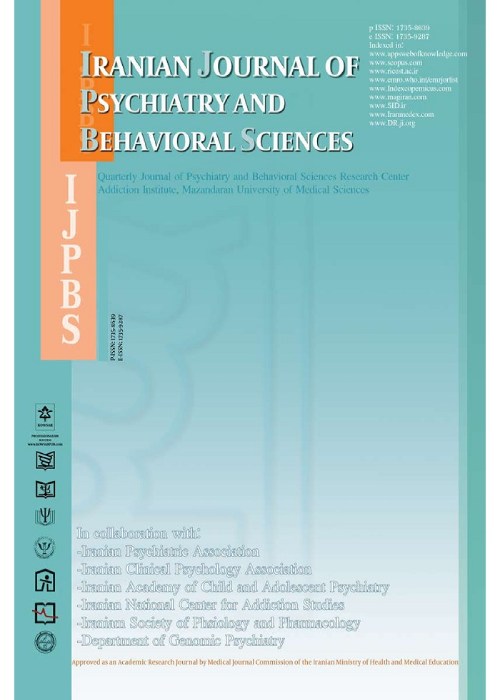Comparing Early Maladaptive Schemas and Schema Modes of Individuals with High and Low Scores in Scrupulosity and Normal Religious People
Scrupulosity or religious obsession is a form of obsessive-compulsive disorder (OCD) and is recognized to be treatment-resistant. One of the most common treatments for treatment-resistant disorders is schema therapy.
This study aimed to compare the early maladaptive schemas and schema modes of individuals with high and low scores in scrupulosity, as well as religious people with no disorder.
The population of this cross-sectional study consisted of all patients with OCD referred to Iran Psychiatric Hospital and the Clinic of Behavioral Sciences and Mental Health in Tehran, Iran, in 2019. The sample included 75 individuals with high score in scrupulosity, 75 individuals with low score in scrupulosity, and 75 religious people with no disorder. At first, all participants were evaluated with the structured clinical interview for DSM-5 disorders-clinical version (SCID-5-CV). Then, they completed the Yale-Brown Obsessive-Compulsive Scale (Y-BOCS), Penn Inventory of Scrupulosity (PIOS), Young Schema Questionnaire-Short Form (YSQ-SF), and Schema Mode Inventory (SMI). Data were analyzed using the one-way analysis of variance (ANOVA) and Kruskal-Wallis test.
Individuals with high scores in scrupulosity were significantly different from normal religious people in the "disconnection and rejection" and "impaired autonomy and performance" schema domains. However, there was no significant difference between individuals with high scores in scrupulosity and those with a low score in any of the schema domains. Also, individuals with a high score in scrupulosity scored higher in almost all schema modes compared to normal religious people. Finally, the "punitive and demanding parent modes" of individuals with a high score in scrupulosity was significantly different from that of individuals with a low score.
According to our results, it is essential to focus on "disconnection and rejection" and "impaired autonomy and performance" schema domains, as well as child and parent modes, especially the dysfunctional parent mode, to treat individuals with a high scrupulosity score. Due to limited literature, further research is needed to confirm our results.
- حق عضویت دریافتی صرف حمایت از نشریات عضو و نگهداری، تکمیل و توسعه مگیران میشود.
- پرداخت حق اشتراک و دانلود مقالات اجازه بازنشر آن در سایر رسانههای چاپی و دیجیتال را به کاربر نمیدهد.


